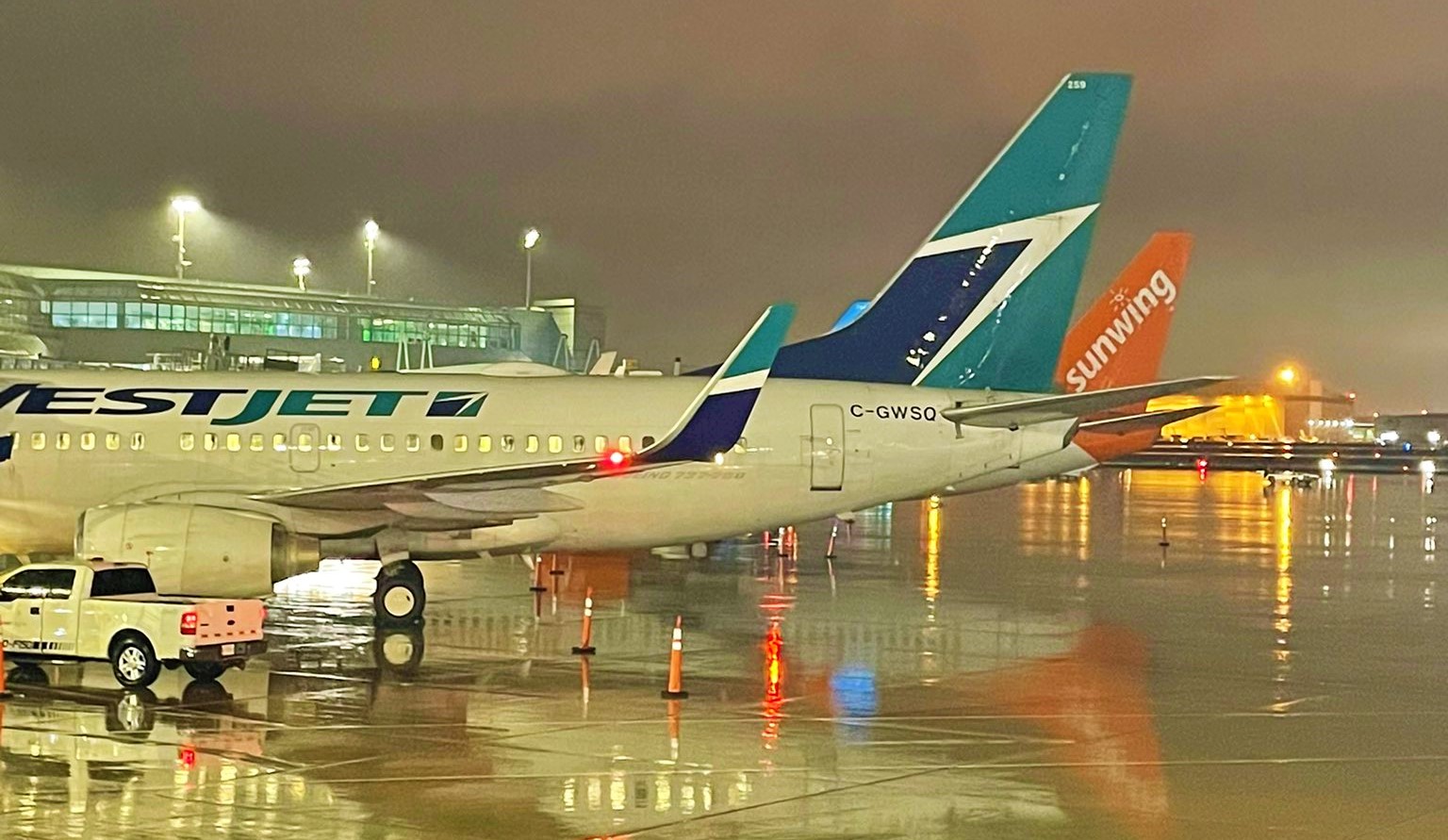


WestJet’s leadership is viewing the 2025 as a “transition year,” air travel industry is slower than the similar period in 2024, and there is an announcement that the carrier now has some new international co-owners on the journey.
Yesterday, Onex Corp., which bought the country’s second-largest air carrier for $5 billion in 2019 and took it private, announced the sale of 25 per cent of WestJet to two large international airlines for a value of $766.8 million Cdn. Affiliated funds and co-investors of the Onex Group intend to participate in the sale alongside Onex Partners.
As mentioned earlier, the development is here as the Canadian carriers experience a sharp drop in US-bound travel following latest wave of trade tensions between the two countries, those including tariffs imposed by the US administration.
The effect is visible with bigger Canadian carriers as well, Air Canada recently lowered its annual earnings forecast, citing weakening trans-border demand and a declining local currency.
The ambitious deal is expected to provide WestJet with enhanced access to global networks while offering Delta and Korean Air expanded reach into the Canadian market.
U.S. carrier Delta Air Lines is buying 15 per cent of Calgary-based WestJet for US$330 million, while Korean Air is acquiring a 10 per cent stake for US$220 million.
Delta and Korean Air have both been both code-share partners with WestJet for more than a decade, and the two international carriers are part of the Skyteam Airline Alliance. The deal will still see Onex, one of the country’s largest private equity players, retain 75 per cent of WestJet.
WestJet CEO Alexis von Hoensbroech, said:
“It’s the best possible outcome for the company,”
“It just solidifies the partnerships that we have and gives all the incentive on both sides, all sides, to grow these partnerships, which would be beneficial for our part, for our customers.”
Delta, Korean Air, KLM and Air France are members of the SkyTeam Airline Alliance. Air Canada is a member of the rival Star Alliance network.
Tawfiq Popatia, the co-head of Onex Partners, said in a statement:
"Delta, Korean and Air France-KLM are among the world's most prominent and best-managed airlines," "Onex is delighted to welcome them as shareholders in WestJet."
Onex acquired WestJet in 2019. WestJet and Delta have been partners since February 2011, and Korean Air and WestJet have partnered since June 2012.
Delta CEO Ed Bastian said:
"Investing in a world-class partner like WestJet aligns our interests and ensures that we remain focused on providing a world-class global network and customer experience for travellers in the United States and Canada,"
Under the agreement, Delta also intends to sell a 2.3 per cent interest in WestJet to Air France-KLM for US$50 million.
“It’s not terribly surprising that it happened,” said industry analyst Chris Murray of ATB Capital Markets.
“Onex certainly is getting closer and closer and closer to the point where they’re going to want to think about exiting their ownership of WestJet . . . For private equity sponsors, generally, there’s a certain period of time between when they make an investment and when they start to divest.”
Onex CEO Bobby Le Blanc has termed the transaction a “strong positive statement on WestJet’s strategy” and its ability to continue to grow.
“With the proceeds, Onex and our affiliated funds and partners will have fully realized our original cost, while still owning 75 per cent of our shares,” he added.
WestJet, that started its operation in Western Canada in the year 1996, now more than 100 destinations in the country and around the world.
The overall transaction doesn’t come with any change to the company’s strategy, beyond what WestJet has been doing.
“Having these partners as our shareholders means that the mutual interest to potentially do more in the partnership is probably even bigger than it was before,” said von Hoensbroech.
One of the most pressing issues facing Canada’s airline industry is the drop in demand for travellers heading into the United States, particularly leisure flyers, which is largely due to the ongoing tariff tensions between the countries and a weak Canadian dollar.
As per the report of Statistics Canada, 13.5 per cent drop in return trips in March by Canadian residents by air from the United States compared to the same time last year.
On an earnings call, Air Canada said Friday it is seeing booking declines on the transborder market in the low teens, on average, over the next six months.
Earlier this week, WestJet made several temporary route suspension and adjustments into the United States, citing the “downward shift” in transborder travel demand.
“We see that transborder bookings have become softer. We also have seen that there’s some overall economic uncertainty,” von Hoensbroech said.
However, Von Hoensbroech is optimistic, and believes the dip in travel demand is temporary:
“We do assume that this current noise is transitional in some fashion, and that sooner or later, there will be a deal — a deal between the countries — and then the traffic or the demand pattern will return,” he said.
“If we look through this noise and think about mid-term, long-term . . . our plans and our vision and our strategy does not change at all.”
Walter Cho, chairman and CEO of Korean Air and Hanjin Group, said:
"This strategic partnership will enhance our global network and create long-term value for customers through greater choice and convenience."
Worth mentioning here, Canadian airlines are bound by ownership rules that require the company and any related voting interests to be Canadian-controlled, and the new arrangement appears to be compliant with that since Onex continues to own the majority of WestJet.
Barclays is acting as financial advisor to WestJet and Onex on the transaction. The agreement is subject to certain regulatory approvals.
